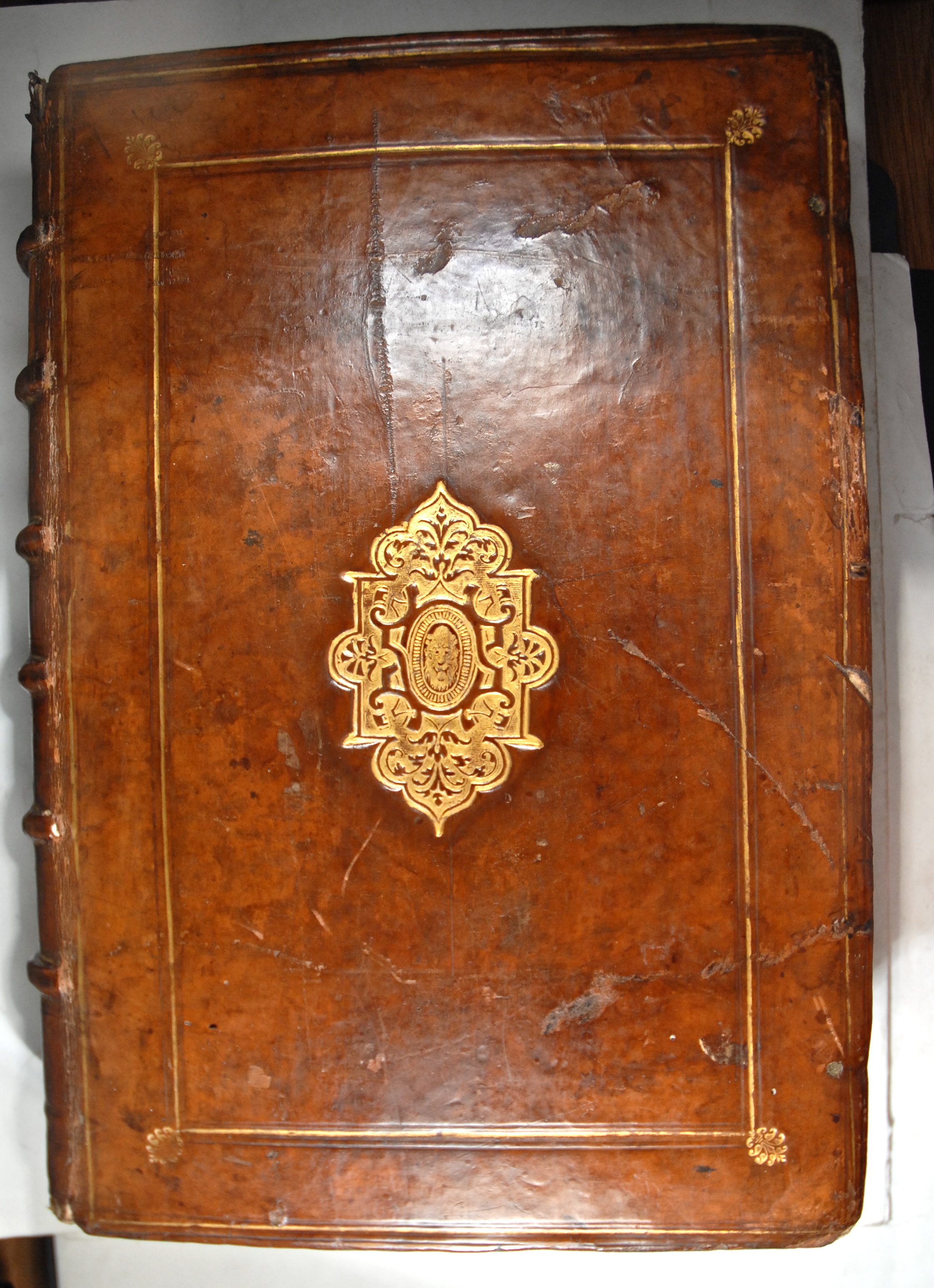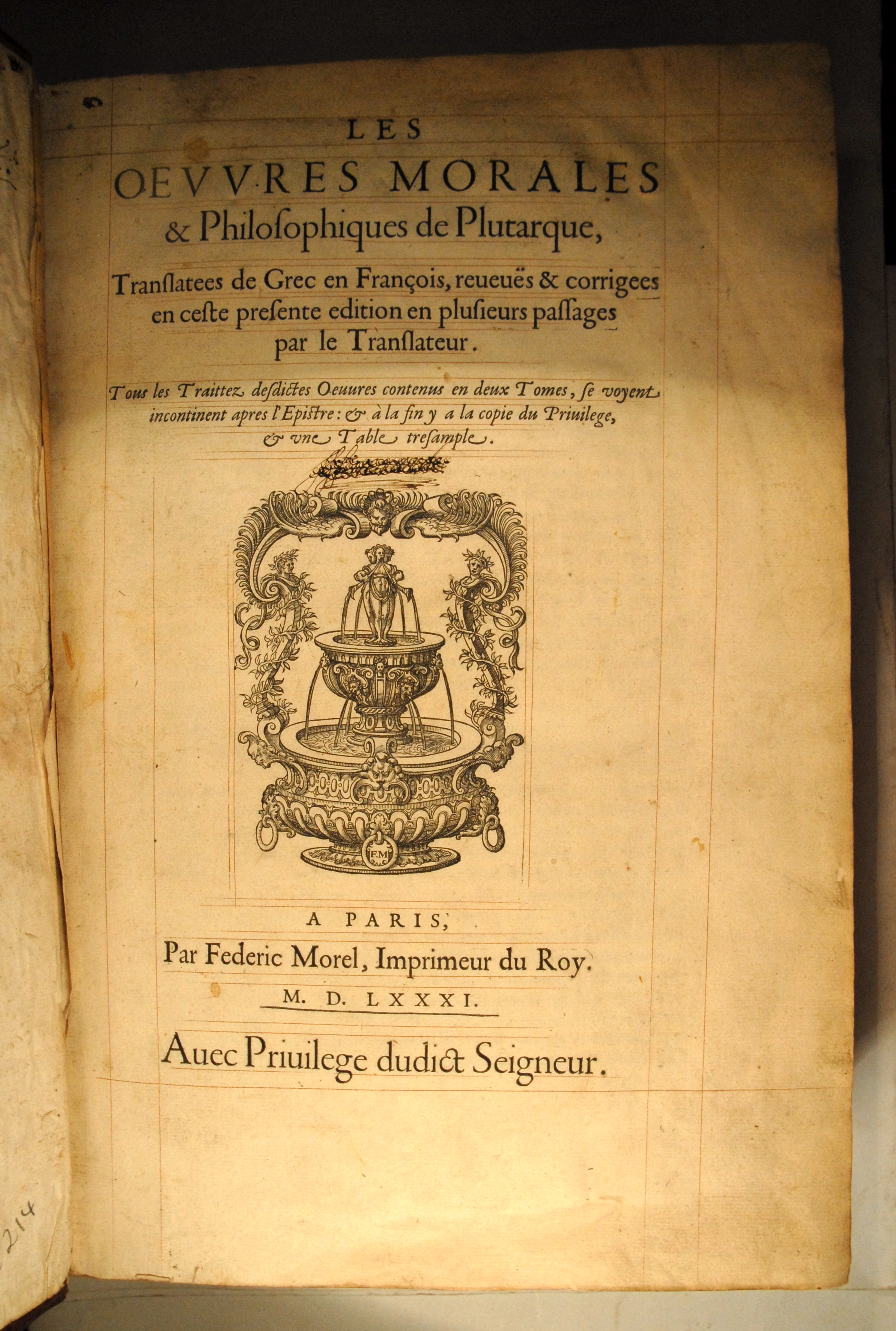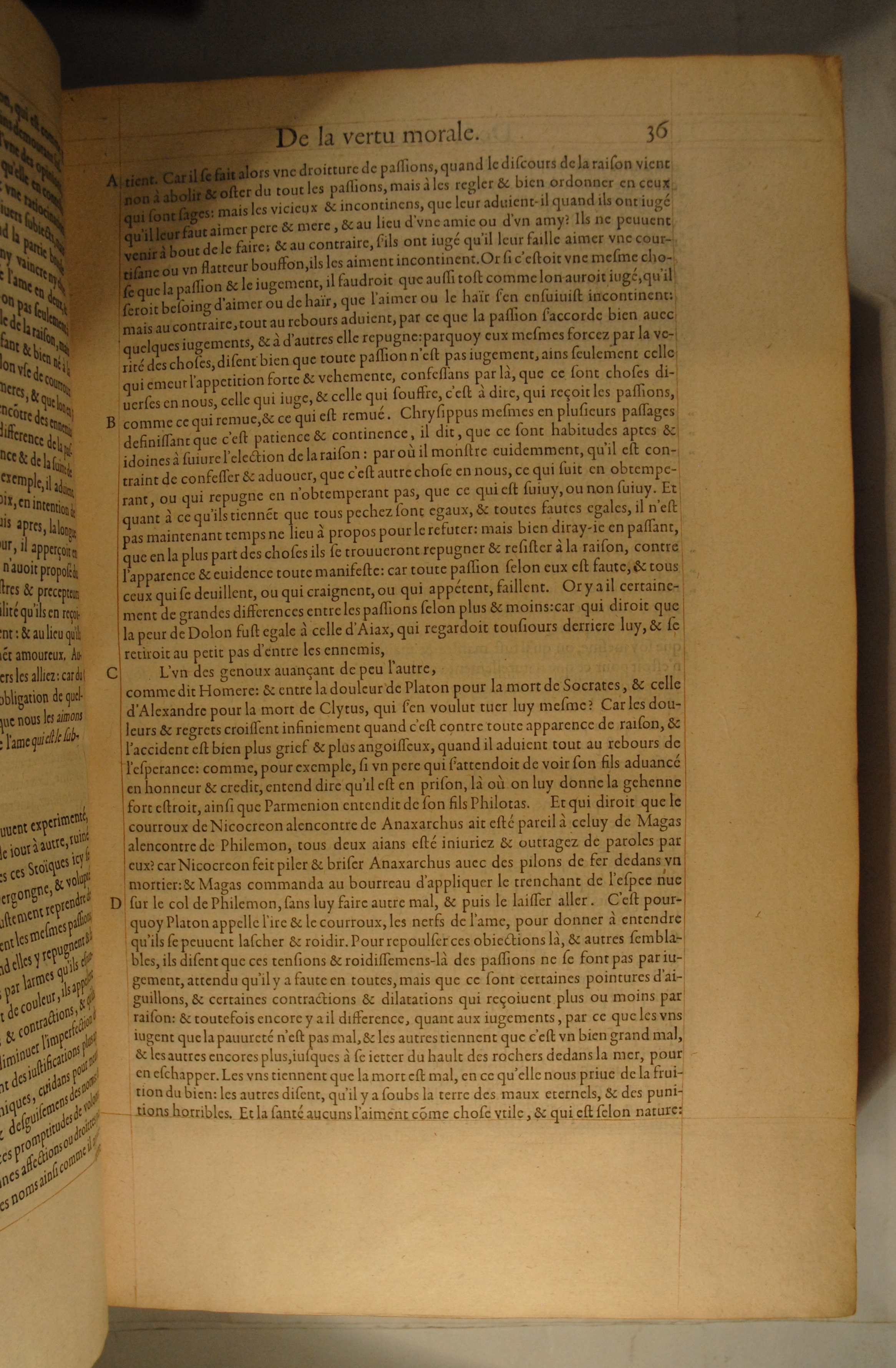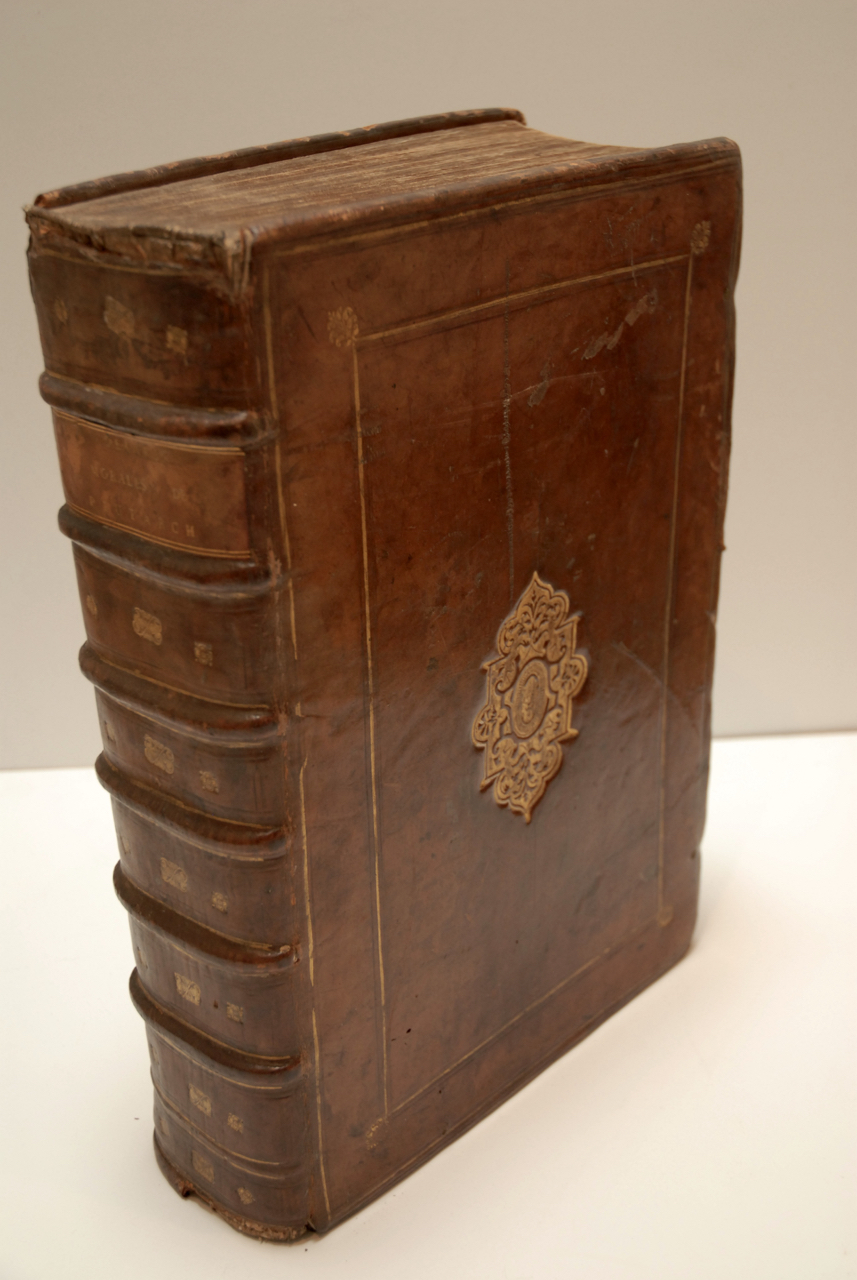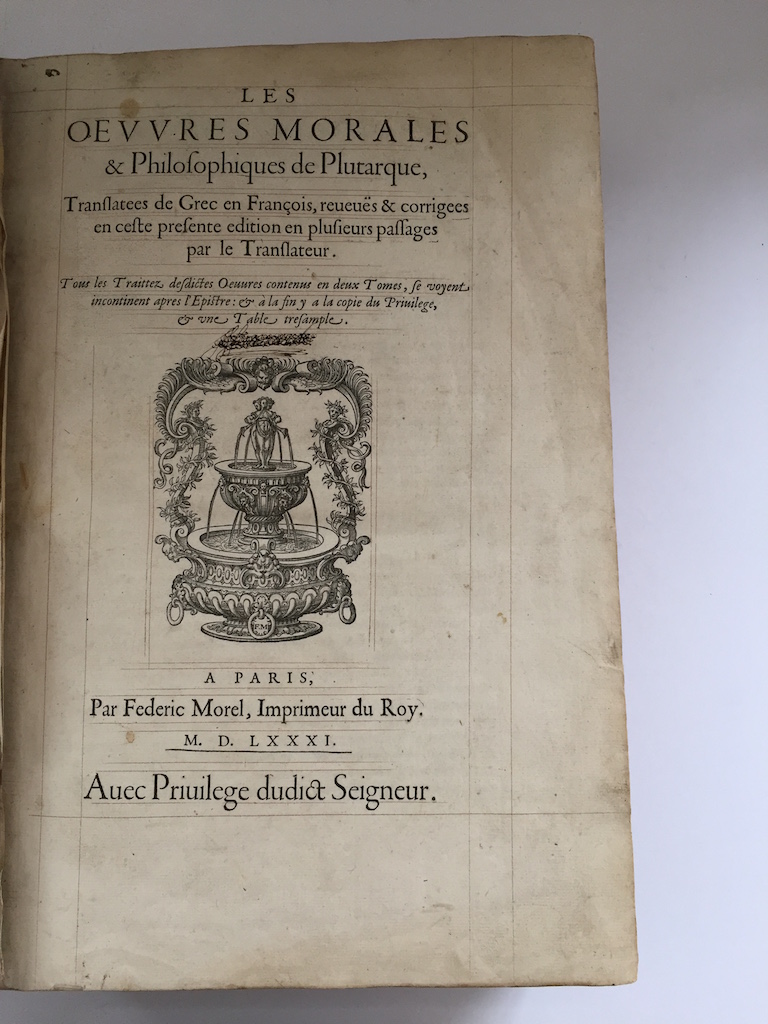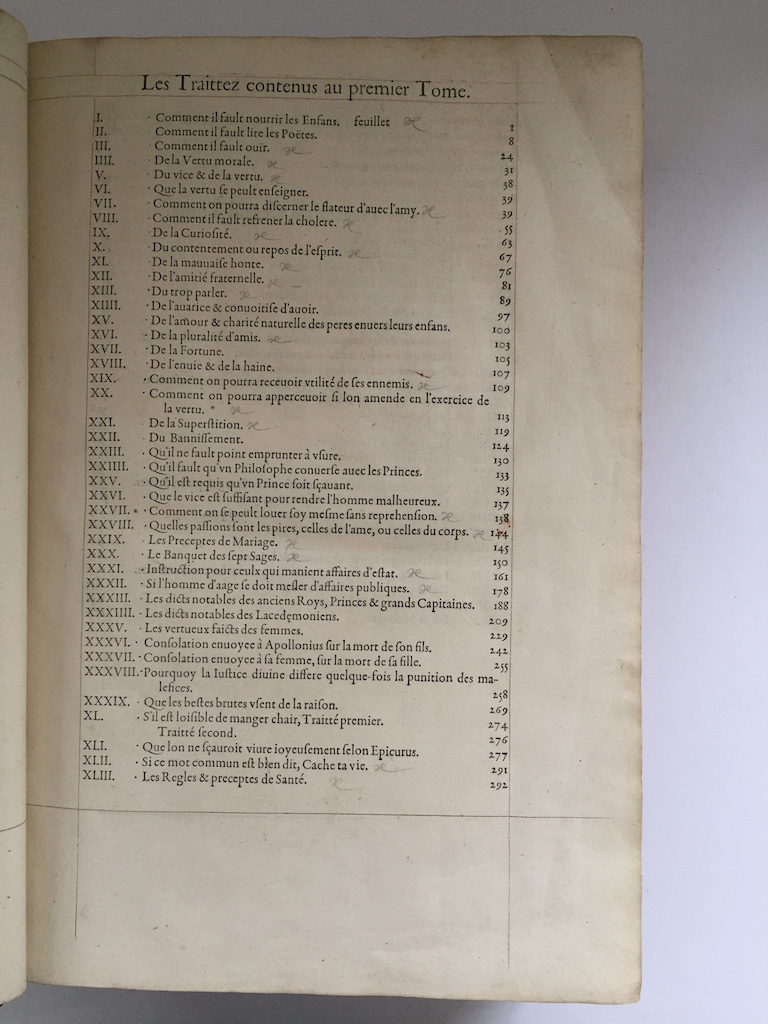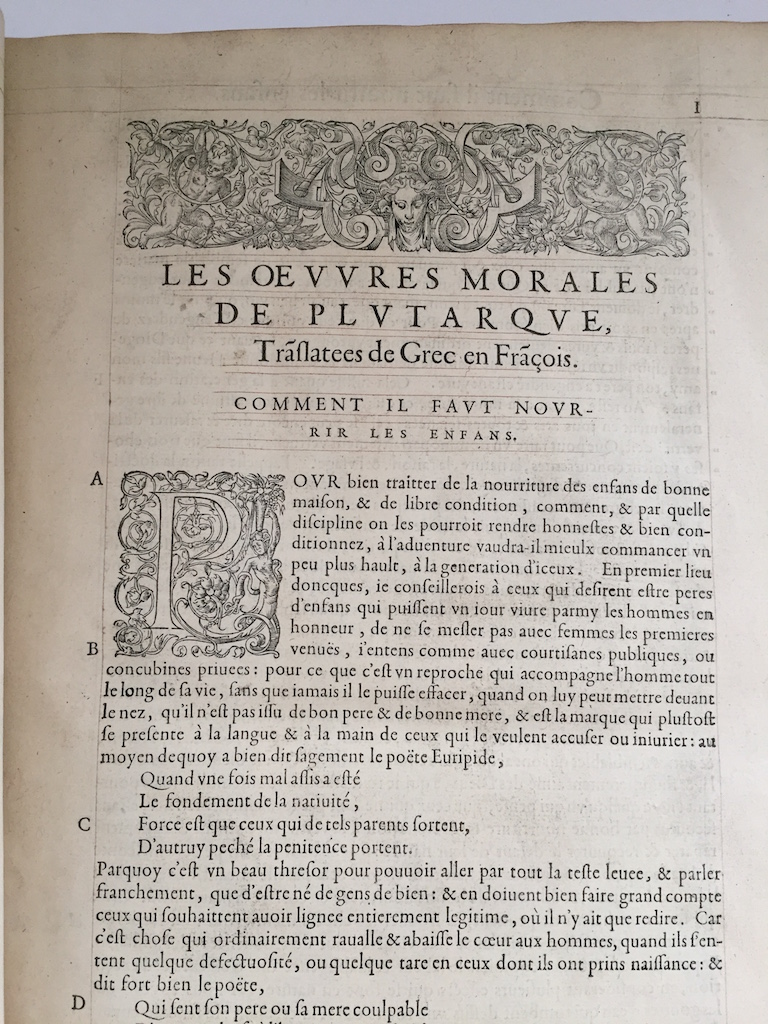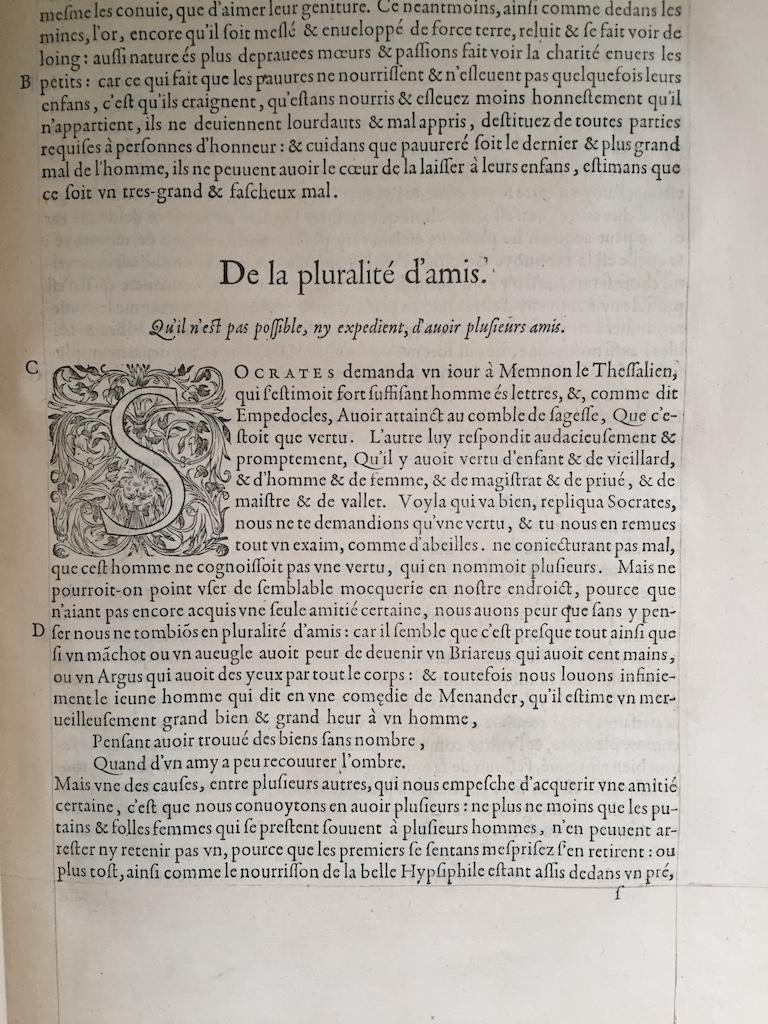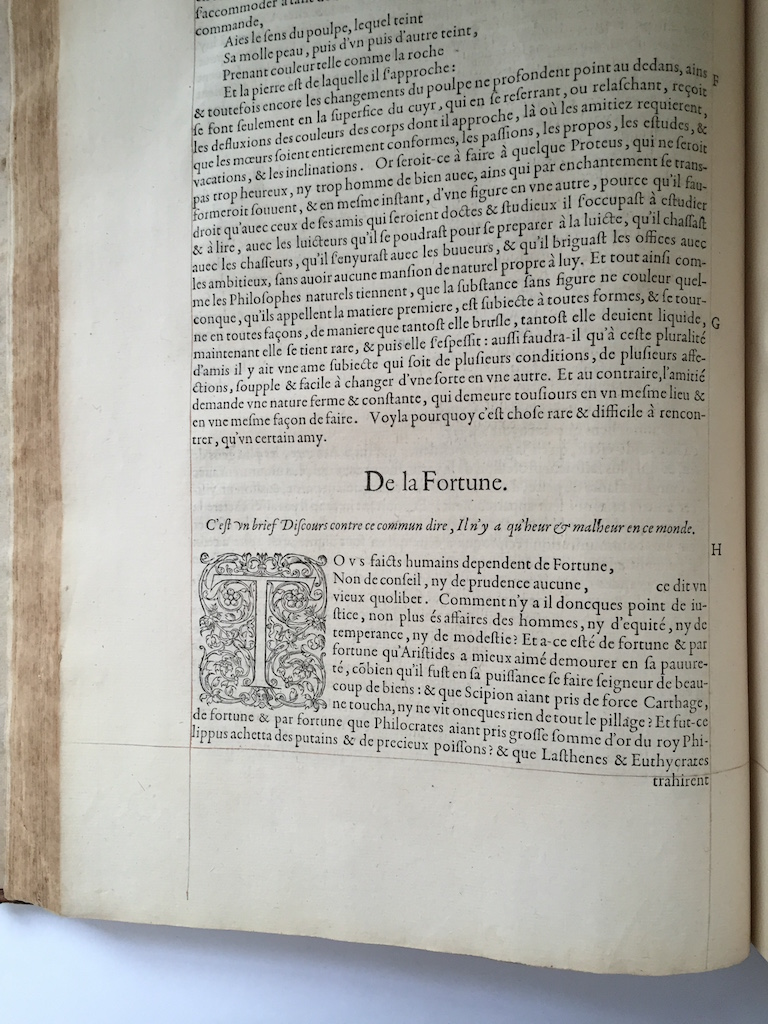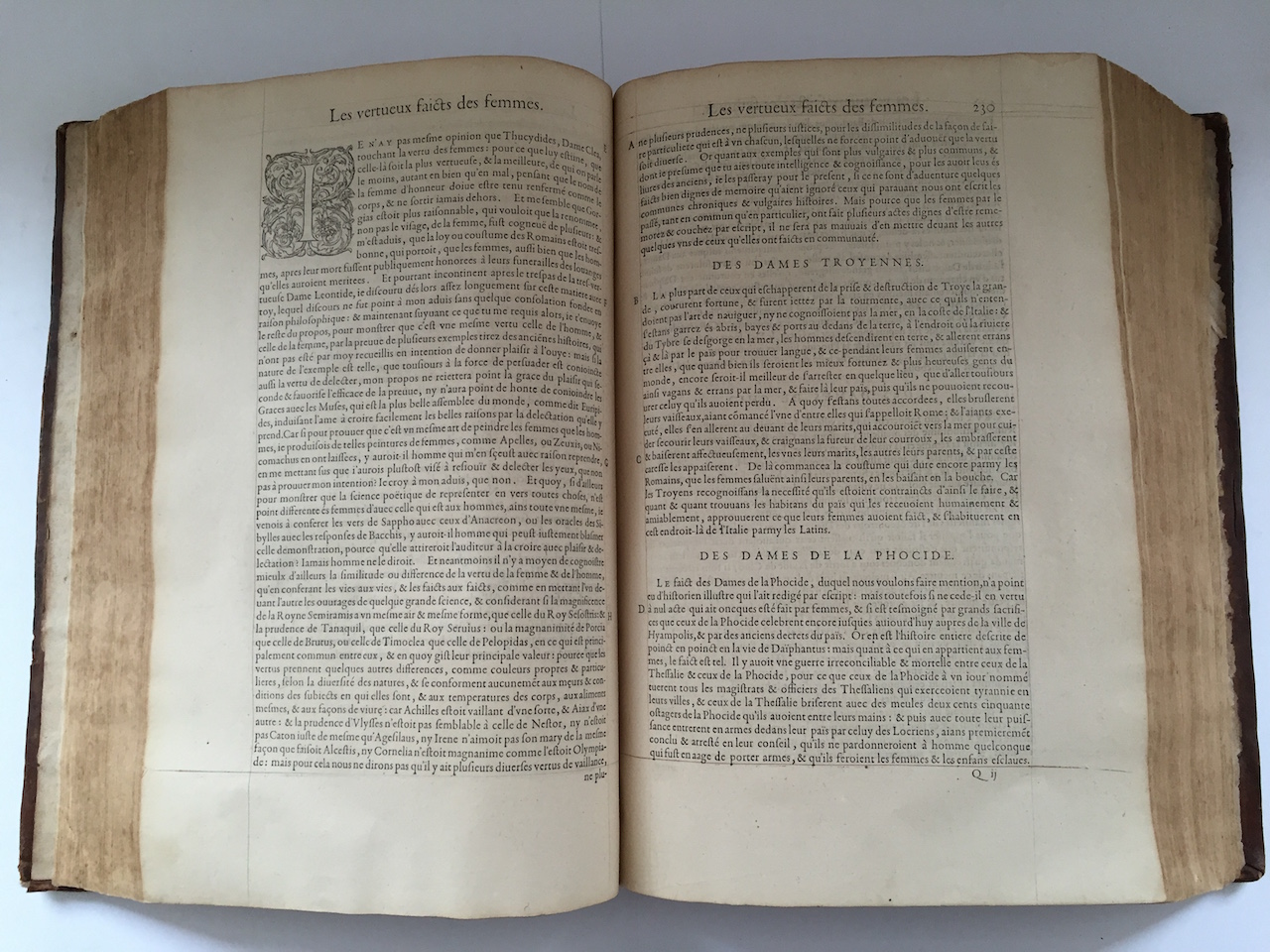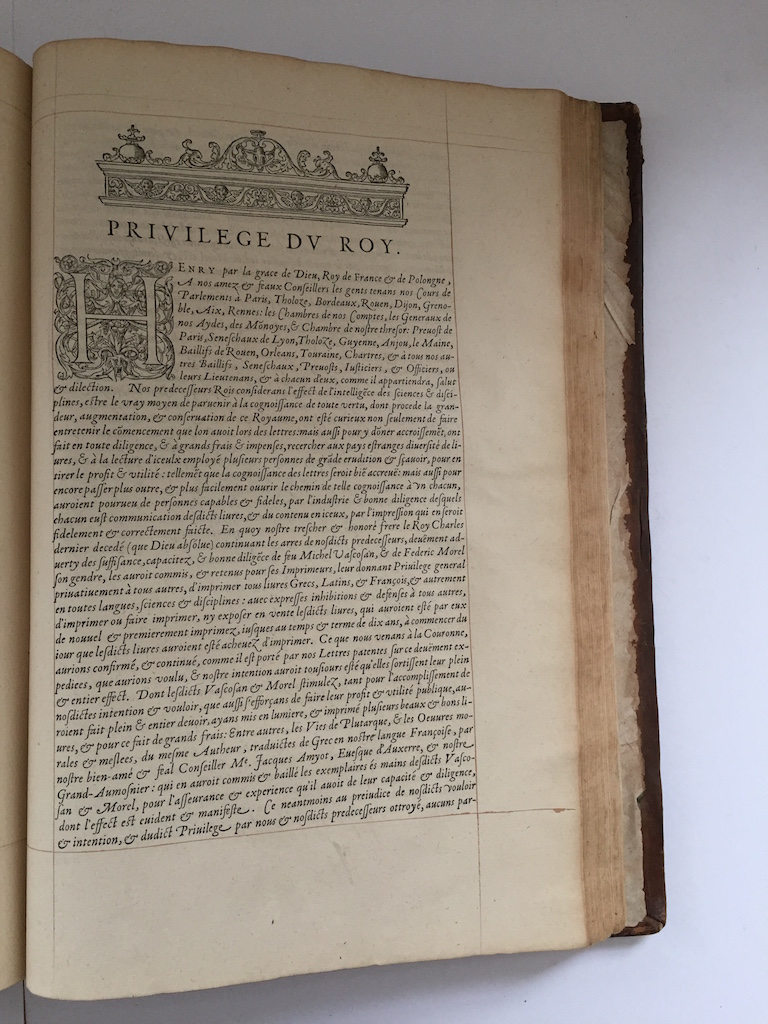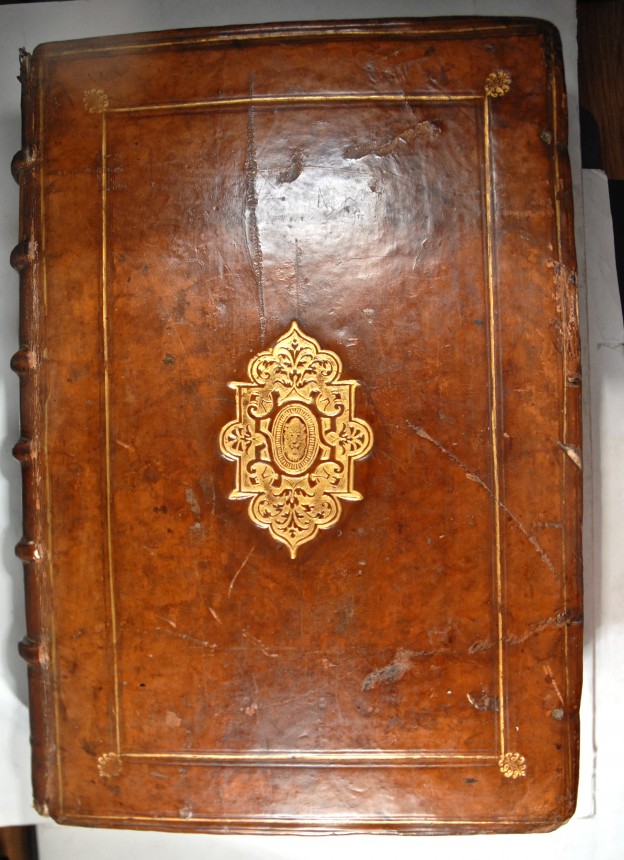PLUTARCH
Les oeuvres morales & philosophiques, reueuës & corrigees en ceste presente edition en plusieurs passages par le translateur..
Paris, chez Iean Macé, au mont S. Hilaire à l\\\'Escu de Bretaigne, 1581£3,250.00
Folio. Two parts in one. ff. [vi] 357 [i] 359-668, [lxxxviii], with all blanks. Roman letter, some Italic, entirely ruled in red. Morel’s large woodcut device on title, large floriated and grotesque woodcut initials and head-pieces, Evelyn family book plate on pastedown, that of Heribert Boeder above, “London the last of December 1613 price 1- 10—0” at head, early autograph crossed out on title, and case mark on pastedown. Title and preliminaries a little dusty, occasional thumb mark, a few minor tears and stains at margins. A very good copy, crisp and clean with good margins, in handsome contemporary French calf, covers blind and gilt ruled to a panel design, fleurons gilt to corners of outer panels, large arabesque with grotesque gilt stamped at centres, spine with gilt ruled raised bands remains of ties, head and tail of spine and edges worn, a little rubbed.
A very handsome copy of this most influential translation of Plutarch’s Morals by the great French translator Jacques Amyot, from the exceptional library of the English diarist John Evelyn. The Moralia of the 1st-century Greek scholar Plutarch of Chaeronea is an eclectic collection of 78 essays and transcribed speeches, that give tremendous insight into Roman and Greek life, but often are also timeless observations in their own right. They include such disparate subjects as ‘On the Fortune or the Virtue of Alexander the Great” an important adjunct to his Life of the great general “On the Worship of Isis and Osiris”, and ‘On the Malice of Herodotus’ along with more philosophical treatises, such as ‘On the Decline of the Oracles’, ‘On the Delays of the Divine Vengeance’, ‘On Peace of Mind’ and lighter fare, such as ‘Odysseus and Gryllus’, a humorous dialog between Homer’s Odysseus and one of Circe’s enchanted pigs. The work also includes ten books on the customs of the table, with much on food and wine.
Jacques Amyot (1513-1594), was tutor to the sons of Henry II (the future Charles IX and Henri III), later a professor at the University of Bourges, ‘Grand Aumonier de France’ and then Bishop of Auxerre,which he turned into an important centre for humanism. He translated the works of Plutarch on the recommendation of Francis I. These translations had considerable impact, not only for their rediscovery of antiquity and of Plutarch, but on the French language itself. Montaigne wrote of these works “Nous autres, ignorants, étions perdus si ce livre ne nous eût relevés du bourbier… C’est notre bréviaire”. He was not just a able translator but his goal was different to the writers of the Pleiade in that he was concerned with reaching a wide, non scholarly audience, and not with hellenistic turns of phrase. He brought French translation into a new era. The works were very successful, appearing in at least five editions within ten years of the first printing, and had huge influence, particularly on Montaigne. Montaigne started working on his ‘Essais’ at roughly the same time as the first edition of Amyot’s translation appeared. Montaigne most often cited his sources, though not always; the first four lines of his Essai “Coutumes de l’île de Cea” open with four sentences copied exactly from Amyot’s translation. Of all the authors of antiquity the one that most palpably influenced Montaigne was Plutarch and in this translation by Amyot. This edition also had a direct influence on the final monumental edition of Montaigne’s Essais edited by Madame de Gournay, copying its format and layout.
From the library of the famous diarist John Evelyn, 1620-1706 (his sale, Christie’s, 16 March 1978, lot 1197). Evelyn was a scholar, connoisseur, bibliophile and horticulturalist, as well as a writer and thinker of sometimes startlingly current relevance. By his death his library is known to have comprised 3,859 books and 822 pamphlets, the major part of which was dispersed at Christie’s in eight sales in 1977 and 1978. Evelyn (1620-1706) was a central figure of English intellectual life for some half a century and his diaries are one of the greatest resources for the period. His breadth of scholarly interests was reflected in his fine and extensive library.
The acquisition note at the head of pastedown maybe that of John Evelyn’s father, Richard the gunpowder magnate of Wotton Surrey.
BM STC Fr, C16th p. 358. Brunet IV 738. Graesse V 367.


